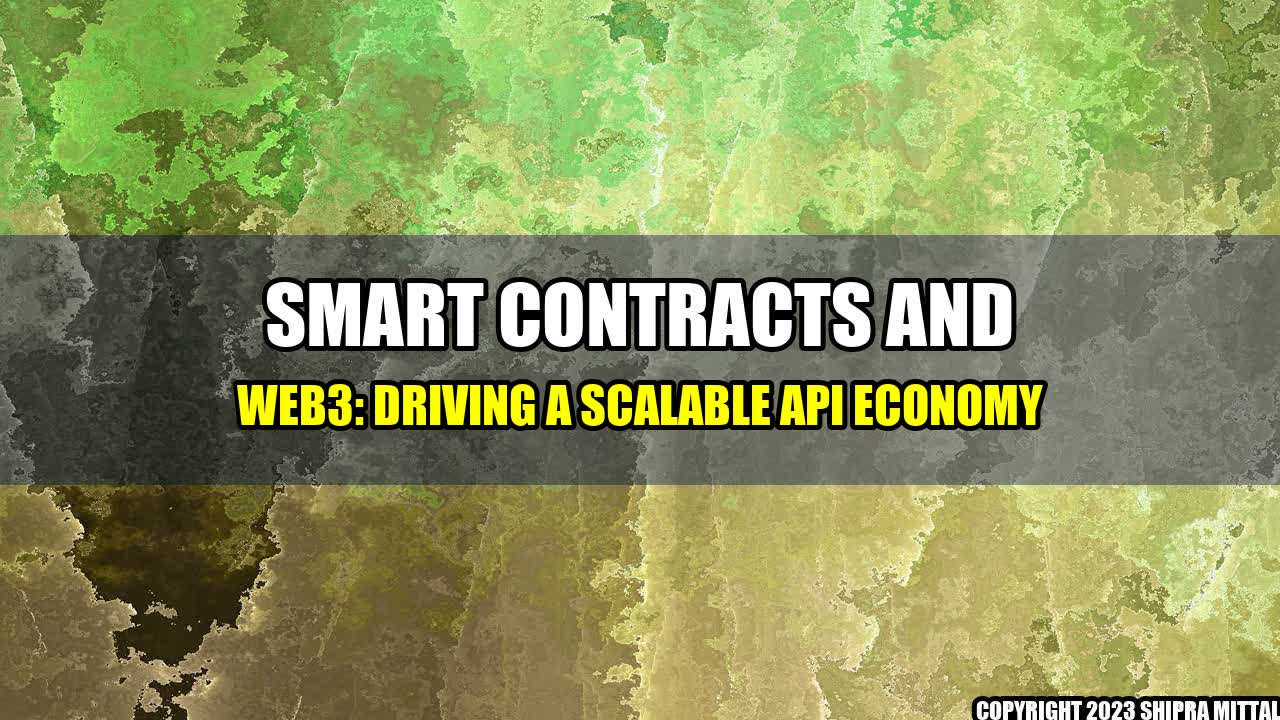
Have you ever experienced the frustration of trying to connect two different software applications, only to find out that their APIs are incompatible? This problem has plagued developers and businesses for years, hindering innovation and stalling digital transformation efforts.
However, the rise of Web3 and Smart Contracts is changing the game for API integration and interoperability. These technologies are enabling a new era of API economy, where developers can seamlessly connect different software applications and services, and create new digital experiences that were once impossible.
One of the most promising applications of Web3 and Smart Contracts lies in the domain of decentralized finance (DeFi). Using blockchain and smart Contract technology, DeFi projects are creating a range of innovative financial products and services, such as stablecoins, lending and borrowing platforms, decentralized exchanges, and more.
A prominent example of this is MakerDAO, which uses a stablecoin called DAI to provide a decentralized alternative to traditional banking services. Another example is Aave, a DeFi platform that allows users to lend and borrow cryptocurrencies, and earn interest on their holdings.
But the potential of Web3 and Smart Contracts extends far beyond the DeFi space. For instance, Chainlink is a blockchain project that enables smart contracts to connect and communicate with off-chain data sources, such as APIs, databases, and other digital systems. This makes it possible for developers to build complex applications that leverage real-time data from multiple sources, without relying on a centralized intermediary.
Another example is Ocean Protocol, a decentralized data marketplace that allows users to share, buy, and sell data in a secure and transparent manner. By using smart contracts and blockchain technology, Ocean Protocol is able to ensure data privacy, integrity, and accountability, while also enabling data discovery and collaboration at scale.
Several companies are at the forefront of developing and promoting the use of Web3 and Smart Contracts for building and scaling APIs. Here are some of the key players to watch:
Web3 and Smart Contracts are transforming the way we think about APIs, by enabling developers to build and scale decentralized, interoperable, and secure digital systems. Whether it's in the domain of finance, data, gaming, or any other industry, the potential of Web3 and Smart Contracts is immense.
However, there are also challenges and risks associated with these technologies, such as scalability, security, and regulatory compliance. Only time will tell how these challenges will be addressed, and how the Web3 and Smart Contracts movement will evolve in the years to come.
Akash Mittal Tech Article
Share on Twitter Share on LinkedIn